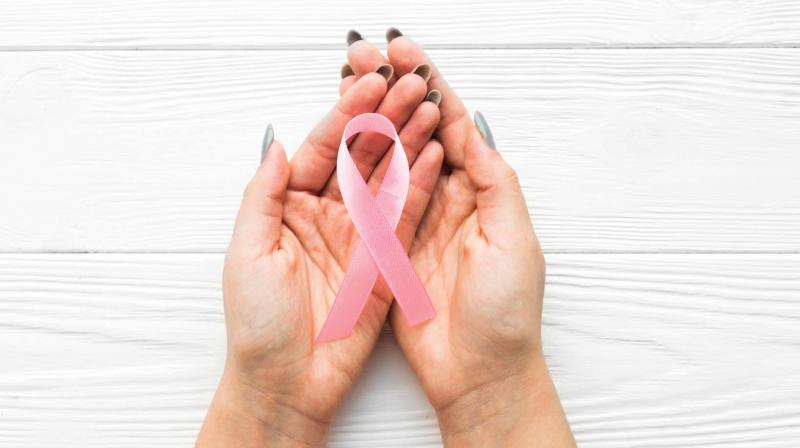Women fight against cancer of ignorance
The survey also revealed that 1 out of 2 women, feel that they are at the risk of breast cancer.

Although breast cancer is now being seen even among young women in the city and elsewhere in the country, there is little awareness about the disease with few opting for regular screening in the absence of a concerted effort by the government to popularise ways to prevent or detect it early among women. The poor particularly suffer in the absence of an adequate number of government cancer hospitals.
The nation rejoiced as the final test match in Sydney, Australia, ended in a draw recently, handing the series to India. But the players from both teams were doing more than play cricket. They were sending a subtle message of solidarity with women, who have breast cancer or have survived it with their pink gears and pink stumps. In the process they helped raise funds for the Glenn McGrath Foundation that is promoting treatment of the disease. The final test was also called the Pink Test with not just the players, but also the spectators sporting pink beards, pink suits, pink ponytails and even pink socks and shoes.
While the West is clearly making an effort to spread awareness about breast cancer, India seems to be doing little to combat the disease although it is the most common cancer and the leading cause of mortality among Indian women today, note health experts.
Awareness drives are clearly the need of the hour as women in Bengaluru and elsewhere in the country appear to lack enough information about the disease. A recent survey conducted by Future Generali India Life Insurance Company in association with Momspresso across 10 key metro cities, including Delhi, Bengaluru, and Mumbai, revealed that one out of two women feel they are at risk of breast cancer but lack the awareness or facilities to get the treatment they need.
About 70 per cent of the 2,225 respondents were unaware of the different treatments of cancer, and 75 per cent shied away from breast cancer screening.
The findings are alarming considering that breast cancer accounts for 14 per cent of all cancers in women, according to the National Institute of Cancer Prevention and Research (NICPR). The incidence in India begins to rise among women in their early thirties and peaks at 50-64. Overall, one in 28 women is likely to develop breast cancer during her lifetime.
The NICPR also revealed that around 1, 62,468 new cases were registered and 87,090 deaths occurred due to breast cancer in the country last year.
One reason why India is becoming home to the largest population of young women with breast cancers is the westernisation of our living habits, says Prof. Dr. Somashekhar S.P, chairman and head of department of surgical oncology at Manipal Hospital in the city.
“Obesity, stress and processed foods predispose us to many cancers like breast and colon cancer. This fact is, however, little known,” regrets Dr. Rajeev Vijayakumar, consultant, medical oncology, hematology and BMT physician at BGS Gleneagles Global Hospitals in Bengaluru .
Women, he observes, shy away from talking about a lump, discharge or pain in their breasts with male family members and this is a major reason why breast cancer in India is often detected at stage three or four than at an early stage like in the West.
Besides the lack of awareness, the country also suffers from a lack of adequate research and funding of healthcare for women in the country, according to Dr. Sylvia Karpagam, public health doctor and researcher. “Although breast cancers have a good cure rate if detected early and treated appropriately, in India, the women reach the health facility at an advanced stage of the disease, and even then the care is less than satisfactory. While there are only a few public cancer hospitals, the ones that exist are overstaffed and under-resourced, and private facilities located in large cities charge exorbitantly, putting them out of reach of the poor,” she laments.

